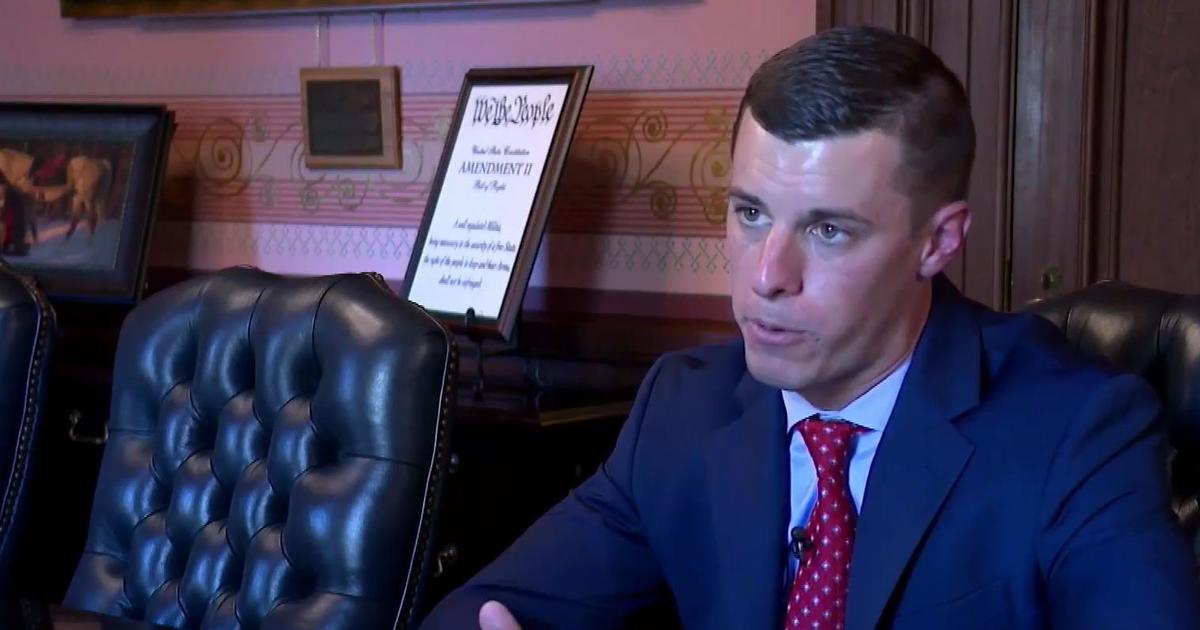Right-To-Work Law Takes Effect In Michigan
DETROIT (WWJ/AP) - Michigan workers can choose not to financially support unions that bargain on their behalf under a right-to-work law now in effect.
The measure that took effect at midnight will apply to labor contracts that are extended or renewed after Wednesday. Many unionized employees won't be affected for months or years.
Union organizers are asking people to wear red Thursday to protest Michigan becoming the 24th right-to-work state -- a once-unthinkable change in a place where organized labor has played a central role. Meanwhile, supporters plan to celebrate the law's passage.
Republican Gov. Rick Snyder is expected to see protesters at unrelated events in Detroit. He said Wednesday the continued political fighting, lawsuits and protests over right to work are "part of democracy" and he appreciates that "change is difficult for people."
Several courts are weighing a host of legal questions about Michigan's right-to-work law, including how it was passed and how it will affect tens of thousands of public workers.
None of the judges weighing four challenges to the law are expected to issue rulings this week, and the issue isn't likely to be settled anytime soon, as further lawsuits are expected over new, lengthy public-sector labor contracts that critics say are meant to circumvent the right-to-work law for as long as possible.
Cases are pending in Ingham County, the state Court of Appeals, the Michigan Supreme Court and a federal court in Detroit. While waging a potentially uphill legal battle that could take years to resolve, labor leaders also have plans for more immediate attempts to influence public opinion ahead of the 2014 election, when Gov. Snyder and many GOP lawmakers are up for re-election.
Although attempts to get judges to strike down the year-old right-to-work law in neighboring Indiana have failed, opponents say Michigan is different.
"All the cases are meritorious and have strong claims and arguments," said Andrew Nickelhoff, a Democratic labor lawyer involved in three of the four Michigan challenges.
He said Republicans began quickly pushing through the legislation in December when the Capitol was closed off to some members of the public due to safety concerns.
"I don't think Indiana closed its Capitol when it passed right-to-work," Nickelhoff said.
Supporters of the law say the lawsuits are frivolous and note that demonstrators already inside the Capitol were allowed to stay during legislative debate.
"Twenty-three other states have a right-to-work law. They've all been upheld, and that's why I have every confidence our Michigan version will be determined to be constitutional," said Republican Attorney General Bill Schuette, whose office is defending the law in state and federal courts.
The lawsuits challenge:
-- Public Act 348, the right-to-work law for private employees. The AFL-CIO, Change to Win and Michigan Building and Construction Trades Council sued Feb. 11 in Detroit's federal courthouse, arguing it violates the supremacy clause of the U.S. Constitution because federal labor law regulates the rights of private-sector workers.
The labor groups also say the law is an unconstitutional attempt to control workplace activities in federal enclaves such as dockyards. Similar arguments were part of a union-led lawsuit in Indiana that was dismissed by a federal judge in January. Michigan's response is due April 3, after which the judge will set a hearing date.
-- Public Act 349, the right-to-work law for public employees. Four of the five unions for 34,000 unionized state workers sued Feb. 14 in Michigan's appeals court, claiming the law does not apply to state employees because their employment conditions are set by the Civil Service Commission under the state constitution. The union for state police did not sue because the law exempts police and firefighters from opting out of paying union fees. A hearing date has not been set.
Also pending is Snyder's Jan. 28 request for the Michigan Supreme Court to issue a rare advisory opinion on whether the law applies to state workers. He also wants to know if the law is unconstitutional because it does not affect all employees. Snyder says the impact on unionized state workers must be resolved before new contract talks begin this summer.
-- How the law was approved. The American Civil Liberties Union of Michigan, Democrats, unions and others sued Jan. 31 in Ingham County, saying the law should be struck down because people were locked out of the Capitol for more than four hours while the measure was debated on Dec. 6 - the first of two days during which the GOP-led Legislature swiftly passed the measure.
Earlier that day, people were arrested for resisting and obstructing when they tried to push past troopers guarding a Senate door. The state Open Meetings Act says a decision by a public body can be invalidated if the body violates the law that requires government transparency. Republicans say it was not their decision to close the Capitol, and they worked to reopen it - although opponents had to obtain a court order for the doors to be opened. A hearing is set for April 3.
At least two other lawsuits have been filed regarding the approval or consideration by some public universities and schools districts of contracts to let unions keep collecting dues long after the law takes effect. House Republicans gave initial approval to budgets cutting state aid to schools and local governments that sign contracts that in some cases are 10 years long, although Snyder and the Senate leaders appear less open to the tactic.
TM and © Copyright 2013 CBS Radio Inc. and its relevant subsidiaries. CBS RADIO and EYE Logo TM and Copyright 2013 CBS Broadcasting Inc. Used under license. All Rights Reserved. This material may not be published, broadcast, rewritten, or redistributed. The Associated Press contributed to this report.



